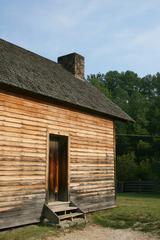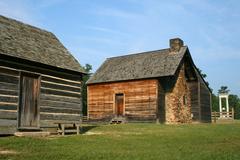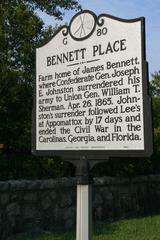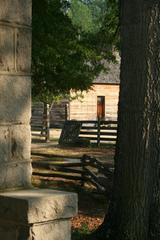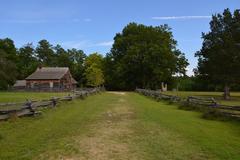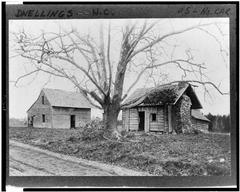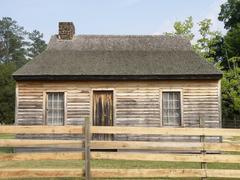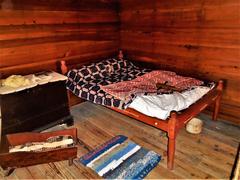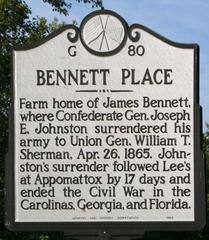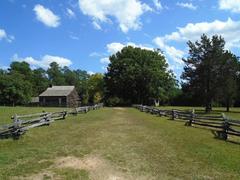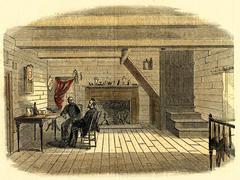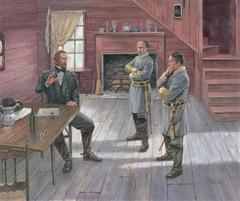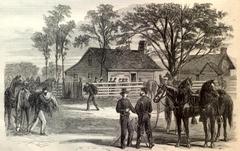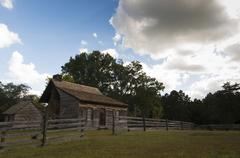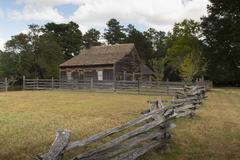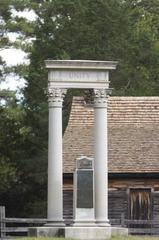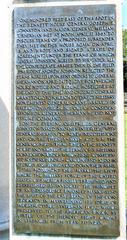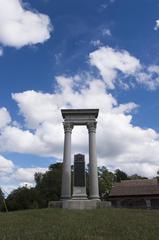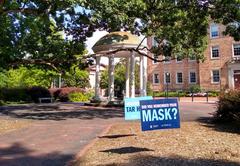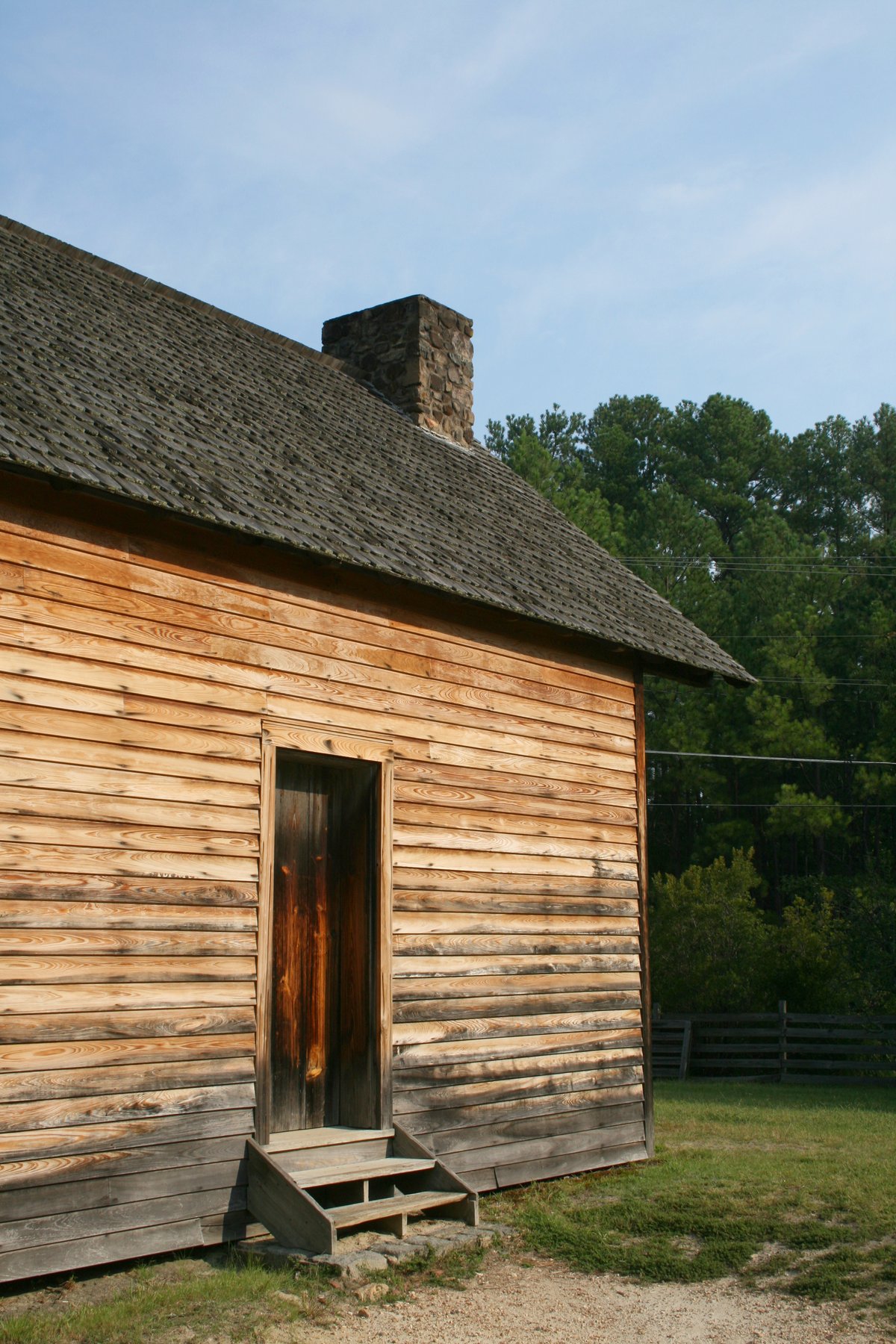
Comprehensive Guide to Visiting Bennett Place State Historic Site in Durham
Publication Date: 24/07/2024
Introduction to Bennett Place State Historic Site
Nestled near Durham, North Carolina, Bennett Place State Historic Site is a landmark of immense historical significance. It stands as the site of the largest Confederate troop surrender during the American Civil War, marking a pivotal moment that effectively led to the war’s conclusion in the Carolinas, Georgia, and Florida. The historic surrender took place on April 17, 1865, when Major General William T. Sherman of the Union Army and General Joseph E. Johnston of the Confederate Army met at the farm of James and Nancy Bennett (Bennett Place Historic Site). This momentous event, which involved the surrender of nearly 90,000 Confederate troops, is not only a critical piece of American history but also a symbol of reconciliation and peace. Visitors to Bennett Place can explore a wealth of educational resources, including a museum with extensive artifacts, reconstructed farm buildings, and living history reenactments that bring the past to life (Visit NC). This guide aims to provide comprehensive information to help you plan a memorable visit, covering everything from visiting hours and ticket information to travel tips and nearby attractions.
Table of Contents
- Introduction
- Historical Significance
- Visitor Information
- Bennett Place Experience
- Educational and Cultural Importance
- Nearby Attractions
- Accessibility
- Special Events and Guided Tours
- FAQ
- Conclusion
- Call to Action
Historical Significance
The Surrender at Bennett Place
Bennett Place State Historic Site is renowned for being the location of the largest Confederate troop surrender during the American Civil War. On April 17, 1865, Major General William T. Sherman of the Union Army and General Joseph E. Johnston of the Confederate Army met at the farm of James and Nancy Bennett near Durham, North Carolina. This meeting was pivotal as it led to the surrender of nearly 90,000 Confederate troops, effectively marking the end of the Civil War in the Carolinas, Georgia, and Florida (Bennett Place Historic Site).
The Negotiation Process
The negotiations at Bennett Place were not straightforward. The initial meeting on April 17 did not result in an agreement. It took several days and multiple meetings for Sherman and Johnston to finalize the terms. The final terms of surrender were agreed upon on April 26, 1865. These terms were more generous than those offered at Appomattox, allowing Confederate soldiers to return home with their personal property, horses, and sidearms (Visit NC).
Impact on the Civil War
The surrender at Bennett Place had a profound impact on the Civil War’s conclusion. It was the largest surrender of Confederate forces, surpassing even the surrender at Appomattox Court House, where General Robert E. Lee surrendered to General Ulysses S. Grant. The terms negotiated at Bennett Place facilitated a more peaceful transition and helped to hasten the end of the war, reducing further bloodshed and destruction (Bennett Place Historic Site).
Visitor Information
Visiting Hours and Tickets
Bennett Place State Historic Site is open Tuesday through Saturday from 9 AM to 5 PM. Admission is free, making it an accessible destination for families and history enthusiasts alike. Donations are welcomed to support the site’s preservation and educational programs.
Travel Tips
- Parking: Free parking is available on-site.
- Best Times to Visit: Spring and fall are ideal times to visit due to the mild weather and beautiful scenery.
- Photography: Visitors are welcome to take photos. The reconstructed farm buildings and surrounding nature trails offer excellent photographic opportunities.
Bennett Place Experience
The Bennett Family and Their Farm
James and Nancy Bennett, the owners of the farm where the surrender took place, were ordinary farmers who found themselves at the center of a historic event. Their modest farmhouse became the site of significant negotiations that would shape the future of the United States. The Bennett family’s story is preserved and shared through the extensive collection of artifacts at the Bennett Place museum, providing visitors with a personal connection to the historical events (Visit NC).
Preservation and Reconstruction
The original Bennett farmhouse was destroyed by fire in 1921. However, efforts to preserve the site’s historical significance led to the reconstruction of the Bennett Farm in the 1960s. Today, the site includes a visitor center, a museum, and reconstructed buildings that offer a glimpse into the past. The museum features a theater presentation and living history reenactments, bringing the events of April 1865 to life for visitors (Bennett Place Historic Site).
Educational and Cultural Importance
Bennett Place serves as an educational resource, providing insights into the final weeks of the Civil War and the lives of those who lived through it. The site hosts various educational programs, including guided tours, lectures, and reenactments, which help to educate the public about this critical period in American history. The museum’s extensive collection of artifacts, including personal items from the Bennett family and military relics, offers a tangible connection to the past (Visit NC).
Nearby Attractions
- Duke Homestead State Historic Site: A short drive from Bennett Place, this site explores the life and legacy of Washington Duke and the early tobacco industry.
- Eno River State Park: Ideal for nature lovers, offering hiking trails, picnicking areas, and scenic views.
- Historic Stagville: One of the largest plantations in the South, providing tours and educational programs about antebellum life.
Accessibility
Bennett Place is committed to being accessible to all visitors. The visitor center, museum, and reconstructed farm buildings are wheelchair accessible. Accessible parking spaces are available, and service animals are welcome.
Special Events and Guided Tours
Bennett Place hosts several special events throughout the year, including Civil War reenactments, educational lectures, and commemoration ceremonies. Guided tours are available and provide an in-depth look at the site’s history and significance. Check the official website for the latest event schedule and tour availability (Bennett Place Historic Site).
FAQ
What are the visiting hours for Bennett Place?
- Bennett Place is open Tuesday through Saturday from 9 AM to 5 PM.
How much are tickets for Bennett Place?
- Admission is free, but donations are appreciated.
Is Bennett Place accessible to visitors with disabilities?
- Yes, the site is wheelchair accessible, and service animals are welcome.
Conclusion
The historical significance of Bennett Place State Historic Site cannot be overstated. As the location of the largest Confederate troop surrender, it played a crucial role in ending the Civil War and shaping the future of the United States. The site offers a wealth of educational opportunities, with its museum, reconstructed farm buildings, and living history events providing a comprehensive and engaging experience for visitors. Through its preservation and educational programs, Bennett Place continues to honor the memory of those who lived through the Civil War and to educate the public about this critical period in American history (Bennett Place Historic Site).
Call to Action
Plan your visit to Bennett Place State Historic Site today and immerse yourself in a pivotal moment in American history. Download our mobile app Audiala for more historical insights and travel tips. Follow us on social media for the latest updates and events.
References and Further Reading
- Bennett Place Historic Site, 2023 https://www.bennettplacehistoricsite.com
- Visit NC, 2023 https://www.visitnc.com/listing/ahhc/bennett-place-state-historic-site
- Historic Sites NC, 2023 https://historicsites.nc.gov/all-sites/bennett-place/plan-your-visit
- Discover Durham, 2023 https://www.discoverdurham.com/blog/plan-a-visit-to-state-historic-site-bennett-place/
- Museum of Durham History, 2023 https://www.museumofdurhamhistory.org/bennett-place-a-moment-that-placed-durham-at-the-crossroads-of-history
